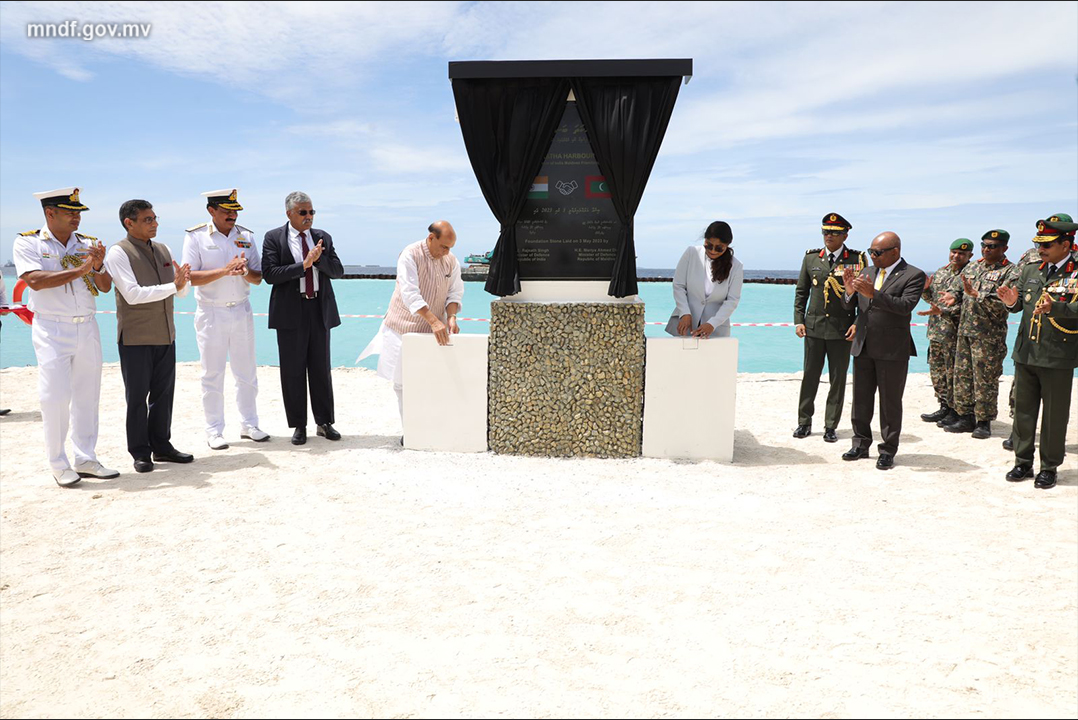SOURCE: AFI


In a surprising policy reversal, Maldives’ newly elected President Mohamed Muizzu has agreed to continue defense cooperation with India, allowing New Delhi to deploy defense platforms in the Indian Ocean archipelago. This comes shortly after Muizzu’s government initially requested the withdrawal of Indian military personnel stationed in the Maldives, a move that was seen as a fulfillment of his election promise to reduce foreign military presence.
President Muizzu, who came to power on an “India Out” campaign, initially pushed for the withdrawal of Indian military personnel stationed in the Maldives for humanitarian and disaster relief operations. These personnel had been deployed as part of a longstanding agreement between the two nations to bolster regional security and humanitarian assistance in times of crisis.
However, in a significant shift, the Muizzu administration has now agreed to allow India to deploy defense platforms in the Maldives. This U-turn underscores a growing recognition of the strategic importance of maintaining strong defense ties with India, especially given the geopolitical tensions in the Indian Ocean region.
In a further boost to the defense partnership, New Delhi has committed to supporting the Maldivian National Defence Force (MNDF) by enhancing its surveillance and monitoring capabilities. India will provide radar systems and other advanced equipment to bolster the MNDF’s ability to monitor its vast maritime borders, ensuring better maritime security and control over the nation’s territorial waters.
The radar systems will significantly improve the Maldives’ maritime domain awareness, allowing the MNDF to detect and track vessels in its exclusive economic zone (EEZ), thereby enhancing the island nation’s ability to prevent illegal fishing, piracy, and other security threats in the region.
The Maldives sits at a critical juncture in the Indian Ocean, along key international shipping routes. Its strategic location has made it a focal point for major powers vying for influence in the region, particularly India and China. By agreeing to India’s defense support, President Muizzu has recalibrated his stance to reflect the broader security dynamics in the Indian Ocean, where India has long played a key role as a net security provider.